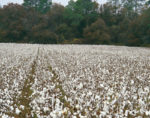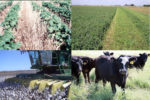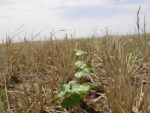Showing 1-4 of 4 results

Sustainable Upland Cotton Production
This project developed a set of 12 video training tools to enhance skills and knowledge about sustainable cotton production for Cooperative Extension agents. The 12 videos are listed below. They were created by a team from Texas A&M University, Louisiana State University, and Oklahoma State University. Cotton Growth and Development Beltwide Seed Quality Survey Basic Soil […]

Agroecosystems Economics in the Texas High Plains: A 10-year analysis, 1999-2008
Based on 10 years of Texas Tech University research, integrated cotton-forage-beef cattle systems are just as profitable as cotton monoculture systems. But there’s more. Integrated crop-livestock systems use less irrigation water, are more energy efficient, preserve soils by reducing wind erosion, and have a lower economic risk related to specific-loss events, such as a drought.

Soil Quality of Integrated Crop/Livestock Systems: Enhancing soil carbon sequestration and microbial diversity
In the Southern SARE-funded study (LS10-229), “Integrated Crop and Livestock Systems for Enhanced Soil Carbon Sequestration and Microbial Diversity in the Semi-arid Texas High Plains,” Texas Tech University researchers evaluated integrated crop/livestock systems for long-term soil quality by assessing microbial activity and soil carbon storage.

Cover Crops and Cotton in the Texas High Plains: SARE research summary, 2007-2009
In a Southern SARE-funded Graduate Student Grant (GS07-056), “Allelopathic Effects of Small Grain Cover Crops on Cotton Plant Growth and Yields,” Texas Tech University researchers investigated allelopathy as the possible cause of the observed suppression and to incorporate livestock grazing as a means of reducing the allelopathic effects on the cotton crop.